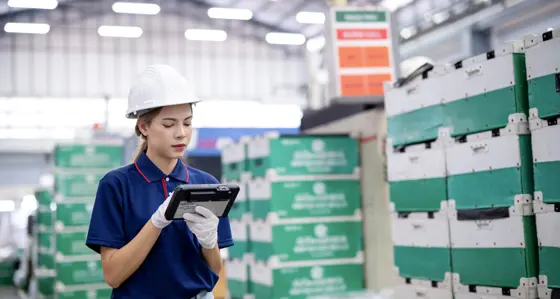
Building commercial capacity in government
30 March 2022
At Baringa, we’ve been fortunate to work with many dedicated government commercial teams in recent years and help them execute complex deals in rapidly changing environments. Commercial teams find themselves responding to an ever-growing list of demands: new policies, expiring contracts, market changes and the disaggregation of the supply base. While the challenges facing each department vary hugely, all teams have one thing in common – they lack commercial capacity. We’ve seen staff shortages rising across commercial teams, with vacancy rates of 10%-20% now becoming a permanent fixture. Dependence on short-term contractors also remains high. Instead of waiting to fill these positions, commercial teams can take steps now to make the most of the teams they have.
- Energise the current team: There are many talented commercial professionals who don’t receive honest, real-time feedback. Now is the time for line managers to go the extra mile and do frequent check-ins with their teams, gathering and giving constructive feedback. This can motivate team members and unlock a culture of continuous improvement.
- Say goodbye to mediocrity: Underperformers and average performers slow down progress for the whole team. When the department is short-staffed, it can be tempting to fill roles with candidates who ‘will do’. But studies show that groups with even one underperformer do worse than other teams by 30%-40%.* It’s not easy or pleasant, but managers must say goodbye to these bad apples who threaten to spoil the lot. A good place to start are those on fixed-term contracts who are in this group.
- Strengthen & streamline the governance: We see too many cases of layers and layers of governance (often just in the commercial team) – more people checking than actually doing. In the commercial profession in particular, sometimes there’s more focus on assurance activities than on delivering direct benefits. Lack of accountability and unempowered decision makers are the culprits. It’s easier for people to say ‘no’ or ‘I need more information’ when faced with a commercial decision. Instead, people should be empowered to say ‘yes, and ‘here are the risks we need to mitigate’. The culture needs to change, to remove fear of failure and stop reliance on a narrow, risk-averse interpretation of regulation and good practice. Most commercial teams could have as much as 20% more capacity each week if teams were fully accountable for the work they produced, if authority was delegated effectively and if meetings had the right attendees.
- Embrace ambiguity: We see commercial teams lose weeks waiting for ‘the business’ or programmes to identify their requirements. Commercial teams need to be proactive and help the business understand where they can go to market with the ambiguity, and where they do need to focus on full definition. In a world where policy, user needs and technology are all changing rapidly, commercial teams can lead the way. Through active market engagement, they can share their ideas and insights on the risk premium attached to the ambiguity.
- Trust colleagues & share resources: Suppliers are delivering similar scope across multiple departments and arm’s-length bodies. We see some good examples of knowledge sharing and lessons learned into the community that the Government Commercial Function is building. Commercial teams should trust their colleagues and seek to reuse existing materials and know-how before starting a new procurement process. This will help understaffed teams get projects off to a faster start and minimise unnecessary duplication.
Commercial professionals hoping for calmer weather ahead are unlikely to see that anytime soon. Expectations are ever growing, change comes thick and fast and resources remain scarce. The steps above are not easy to take, but they’re necessary to grow a commercial capability that can meet the challenges government will face.
Of course, these actions address only one side of the capacity challenge. In a future post, we will discuss how commercial teams can improve both the quality and quantity of resources and deliver a more flexible service to meet customers’ needs.
To find out more about how to build commercial capacity in government, please get in touch with Sarah Ashley or John Thompson.
* Will Felps et al. “How, When and Why Bad Apples Spoil the Barrel: Negative Group Members and Dysfunctional Groups.” Research in Organzational Behaviour 27 (2006).
Our Experts
Related Insights

Your people are key to unlocking the backlog burden
Dealing with crises will always be part of the Government’s DNA – its ability to adapt rapidly and act with agility is vital. How do we address the root causes of problems to prevent them recurring and worsening backlogs further?
Read more
Driving the digital shift in health: what to watch in the 10-year health plan
At the heart of the 10-Year Health Plan lies a decisive shift from analogue to digital, putting power in patients’ hands, enabling a shift to the Neighbourhood Health Service and moving from centralised control to empowered front-line delivery. These changes are not just strategic - they are essential.
Read more
Laying the foundation: Preparing government procurement for AI integration
What foundational steps must government agencies take today to ensure AI can truly transform procurement tomorrow?
Read more
UK Spending review 2025 – impact and challenges for the public sector
Explore the 2025 UK Spending Review’s impact on public services, tech investment, and the challenges facing government departments.
Read moreRelated Client Stories

Delivering an independent evaluation for the NSW Advocate for Children and Young People
An independent evaluation of the NSW Strategic Plan for Children and Young People 2022–2024 was conducted to assess its impact and support future planning.
Read more
Improving data preparation and collection for better State Government decisions
How do you collect and translate inconsistent data from disparate systems to better inform and evaluate the impact of spend policies?
Read more
Putting a social outcomes lens over an IT RFP for an Australian government agency
How do you change how vendors see their systems, so responses align with agency outcomes and non-functional requirements?
Read more
Shifting the paradigm from projects to products – lessons from UK Home Office
Who is responsible for evolution of the services and digital products created by programmes that have ended? A question faced to all Government departments as they try to embed the principles set out in the Blueprint for a Modern Digital Government.
Read moreIs digital and AI delivering what your business needs?
Digital and AI can solve your toughest challenges and elevate your business performance. But success isn’t always straightforward. Where can you unlock opportunity? And what does it take to set the foundation for lasting success?

